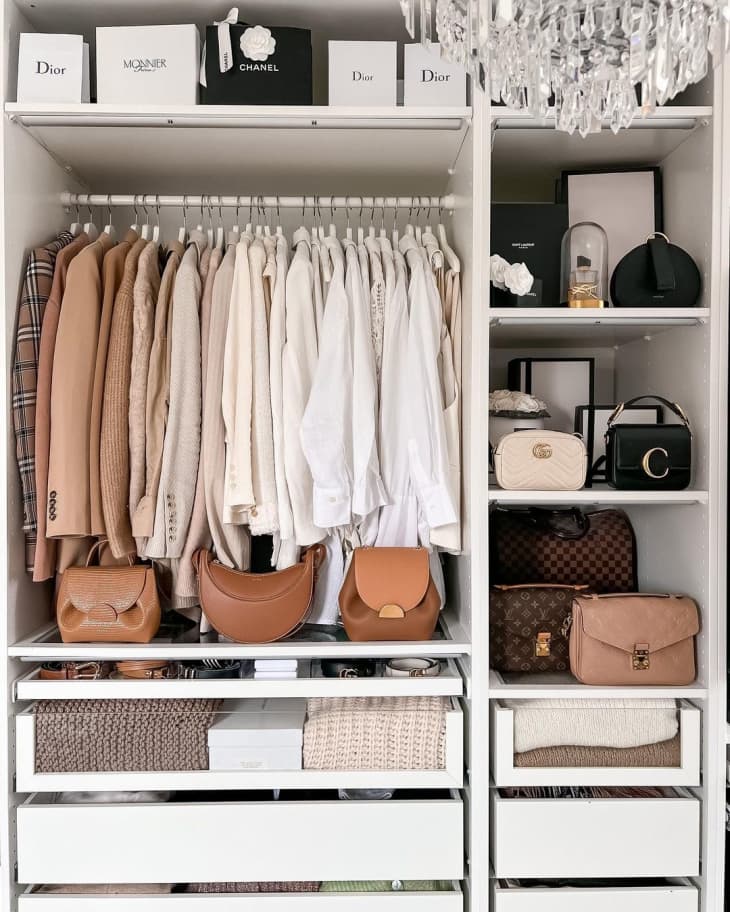
Creating a space that is both functional and aesthetically pleasing is a goal shared by many. Whether you’re redecorating your entire home or simply looking to refresh a single room, understanding the basics of interior design can help you achieve the look you desire. In this guide, we’ll explore various aspects of interior design, from color theory to furniture selection, to help you transform your living spaces.
1. Declutter Regularly
The first step to an organized closet is to declutter regularly. Go through your clothes and accessories, and get rid of anything you no longer wear or need.
2. Categorize Your Belongings
Categorize your clothes by type (e.g., tops, bottoms, dresses) and season. This will make it easier to find what you’re looking for.
3. Utilize Closet Organizers
Invest in closet organizers like shelves, drawers, and hanging racks to maximize space and keep your belongings neatly arranged.
4. Fold Clothes Efficiently
Learn efficient folding techniques to save space and keep your clothes wrinkle-free.
5. Use Storage Bins and Boxes
Use storage bins and boxes to store out-of-season clothes, shoes, and accessories.
1. Modern Minimalist
Clean lines, neutral colors, and minimal clutter characterize this style.
2. Scandinavian
This style emphasizes simplicity, functionality, and natural materials like wood and wool.
3. Industrial
Raw materials like exposed brick, metal, and concrete are key elements of this style.
4. Bohemian
Bohemian style is eclectic, colorful, and often incorporates global influences.
5. Traditional
This style is characterized by classic elements like ornate furniture, rich fabrics, and symmetrical layouts.
1. Living Room
Neutral colors like beige, gray, and white create a calm and inviting atmosphere.
2. Bedroom
Soft, muted colors like pale blue, lavender, and mint green promote relaxation.
3. Kitchen
Bright, bold colors like red, orange, and yellow can energize the space.
4. Bathroom
Cool colors like blue and green can create a spa-like ambiance.
1. Consider Your Lifestyle
Choose furniture that suits your lifestyle and needs.
2. Invest in Quality
Invest in quality furniture that will last for years.
3. Mix and Match
Don’t be afraid to mix and match different styles and textures.
4. Scale and Proportion
Consider the scale and proportion of your furniture in relation to the room size.
1. Layer Your Lighting
Combine ambient, task, and accent lighting to create a well-lit space.
2. Use Dimmers
Dimmers allow you to adjust the mood of your lighting.
3. Natural Light
Maximize natural light by using sheer curtains or blinds.
1. Use Multifunctional Furniture
Opt for furniture that serves multiple purposes, such as a sofa bed or a storage ottoman.
2. Utilize Vertical Space
Use shelves, wall-mounted organizers, and hanging storage solutions to maximize vertical space.
3. Light Colors and Mirrors
Light colors and mirrors can make small spaces appear larger.
1. Hardwood Floors
Hardwood floors are durable, timeless, and add warmth to a space.
2. Tile Floors
Tile floors are easy to clean and perfect for high-traffic areas.
3. Carpet
Carpet adds comfort and warmth to a room.
4. Laminate Flooring
Laminate flooring is a budget-friendly alternative to hardwood.
1. Built-in Storage
Built-in storage solutions like shelves, cabinets, and drawers can maximize space.
2. Decorative Storage Baskets
Use decorative storage baskets to hide clutter and add a touch of style.
3. Wall-Mounted Storage
Wall-mounted shelves and hooks can free up floor space.
1. Art and Decor
Express your personality through art, photographs, and decorative objects.
2. Plants
Add life and color to your space with plants.
3.